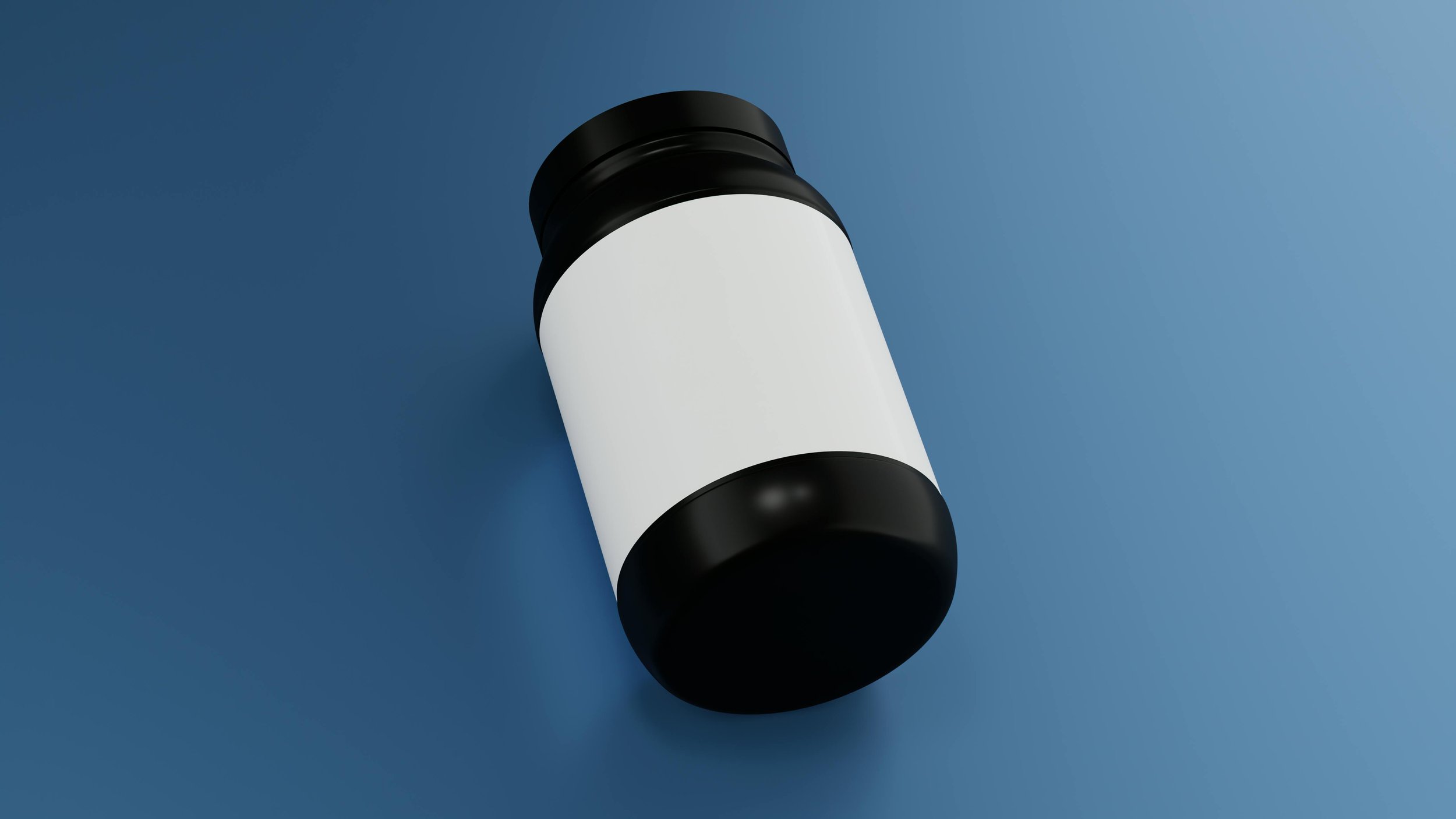
How to Choose a Quality Monolaurin Supplement
Buying Guide
Monolaurin is a compound made from lauric acid, a healthy fat most commonly found in coconut oil. Many people take monolaurin supplements to support their immune system and overall wellness. Because the body only converts a small portion of dietary lauric acid into usable monolaurin, supplements offer a more consistent and concentrated way to get it into your daily routine.
Not all monolaurin products are created the same. Differences in sourcing, purity, manufacturing, and testing can affect how a supplement performs—or whether it supports your goals at all. With so many options available, it’s easy to feel uncertain about which product to trust.
This article answers key questions about choosing a monolaurin supplement. You’ll learn how to spot quality products, compare formats, and avoid common red flags—so you can find one that fits your needs.
What Should I Look for in a Monolaurin Supplement?
Start by checking where the lauric acid comes from. Most high-quality monolaurin supplements are made from coconut oil, which naturally contains a higher percentage of lauric acid than palm oil. Coconut-derived monolaurin is preferred because it’s widely studied and recognized as safe for dietary use. [1].
Next, look at the ingredient list. A clean formula should avoid common allergens like soy, gluten, or dairy—and steer clear of artificial colors or preservatives. If you prefer a simple, gentle option, the fewer the ingredients, the better.
Another key factor is third-party testing. Reputable supplement companies send their products to independent labs to confirm they’re free from contaminants like heavy metals, microbes, and residual solvents. If a brand makes those lab results available, that’s a good sign of quality and transparency.
Choosing a product that is coconut-sourced, additive-free, and tested for purity helps ensure you're getting a supplement that’s both safe and effective for daily wellness [1].
Are All Monolaurin Products the Same?
Not really. While many supplements are labeled “monolaurin,” they’re not all made the same way. Differences in raw material quality, how they’re processed, and whether or not the product is tested can impact the final result.
Start with how it's made. Some manufacturers use harsh solvents or cheaper ingredients to cut costs, while others follow cleaner extraction methods that help protect the integrity of the monolaurin. This step affects both quality and safety.
It’s also worth checking if the product is manufactured in a certified facility. Look for mentions of cGMP (Current Good Manufacturing Practices), NSF certification, or similar standards. These certifications show that the supplement was made under strict quality controls.
Another factor is GRAS status (Generally Recognized as Safe). Monolaurin derived from coconut oil has been recognized as GRAS when used as a food additive, making it a trusted option for many wellness products [2].
So even if two products look similar on the surface, their manufacturing and testing processes can make a big difference in quality.
Should I Choose Capsules, Pellets, or Powder?
Choosing the right form of monolaurin depends on your preferences and lifestyle. Each format—capsules, pellets, and powder—has pros and cons. Knowing the differences can help you decide which one fits your routine best.
Capsules are the most convenient. They’re easy to carry, have no taste, and require no measuring. Many people prefer capsules for travel or daily use at work or school. If you're looking for a simple, mess-free option, capsules are a strong choice.
Pellets are popular for gradual dosing. They give you flexibility to start with a small amount and build up over time. This makes them ideal for those trying monolaurin supplements for the first time or adjusting their intake.
Powder offers the most control, but it can be harder to measure. It often has a stronger taste, which may be unpleasant for some users. However, it can be mixed into foods or drinks for those who want full customization.
No form is better than the others—it comes down to what fits your wellness habits and preferences best.
For a detailed look at different formats, see this format guide from Natural Cure Labs.
What Are the Best Brands of Monolaurin?
Instead of asking which brand is “best,” it’s more helpful to look for signs of quality and reliability. Good monolaurin brands share common traits: transparent sourcing, clean ingredients, and third-party testing.
Start by checking the label. Reliable brands clearly list coconut oil as the source of lauric acid. They also avoid artificial fillers, sweeteners, or unnecessary additives. If the formula looks overly complex, that may be a red flag.
Look for companies that provide lab testing results or mention third-party certifications like cGMP or NSF. These quality standards help ensure the supplement was manufactured in a safe, well-controlled facility. Brands that share these details openly tend to prioritize product integrity.
Customer reviews can offer insight too—but focus on trends rather than isolated comments. Reputable brands usually have a long track record, educational resources, and a clear commitment to quality.
If a brand doesn’t disclose its sourcing, manufacturing standards, or testing processes, that’s worth reconsidering.
How Can I Tell If a Product Is High Quality?
Not all monolaurin supplements meet the same quality standards. A product might look similar on the surface but fall short when it comes to what’s inside the bottle. To find a high-quality supplement, start with the label.
A good label is clear, specific, and complete. You should see the exact amount of monolaurin per serving and a short, simple list of ingredients. Avoid products with proprietary blends or vague descriptions like “coconut derivative” with no details. High-quality supplements list coconut oil as the source of lauric acid and avoid added sugars, fillers, or artificial ingredients [4].
You should also look for signs of third-party testing. Reputable products are tested by independent labs for purity, potency, and safety. This helps verify that the supplement is free of contaminants like heavy metals or microbes [3]. If a brand offers lab reports or certificates of analysis, that’s a strong sign of transparency and trustworthiness .
Certifications like cGMP or NSF are also helpful, but don’t rely on badges alone. It’s more important to see the company openly share its testing practices and ingredient sourcing [4].
For added confidence, you can also check independent testing platforms like ConsumerLab, which regularly reviews supplements for label accuracy, purity, and safety [5].
“Proprietary blends and non-specific ingredient labeling are common quality concerns in the supplement industry.” [4]
Final Thoughts
Choosing a monolaurin supplement doesn’t have to be overwhelming. Focus on the basics: clean ingredients, coconut sourcing, third-party testing, and clear labeling. A high-quality product will tell you exactly what you’re getting—no vague terms or hidden blends.
Pick a format that fits your lifestyle. Capsules are convenient, pellets offer dosing control, and powder works for full customization. There’s no single “best” option—only what works best for you.
Start with a small amount and follow the instructions on the label. If you’re unsure, check with a healthcare professional to make sure it fits into your wellness routine .
References:
Kabara, J. J. (1978). Structure-function relationships of surfactants as antimicrobial agents. Journal of the American Oil Chemists’ Society, 55, 291–295. https://doi.org/10.1007/BF02660766
Silva, V. de O., Pereira, L. J., Pasetto, S., da Silva, M. P., Meyers, J. C., & Murata, R. M. (2018). Effects of Monolaurin on Oral Microbe–Host Transcriptome and Metabolome. Frontiers in Microbiology, 9, Article 2638. https://doi.org/10.3389/fmicb.2018.02638
Office of Dietary Supplements. (2023). What You Need To Know About Dietary Supplements. National Institutes of Health. https://ods.od.nih.gov/factsheets/WYNTK-Consumer/
Dickinson A, Blatman J, El-Dash N, Franco JC. (2014). Consumer usage and reasons for using dietary supplements: Report of a series of surveys. Journal of the American College of Nutrition, 33(2), 176–182. https://doi.org/10.1080/07315724.2013.875423
ConsumerLab. (n.d.). Monolaurin Supplements Review. Retrieved from: https://www.consumerlab.com/
Your Health Deserves the Best
Looking for a Monolaurin you can trust? Click below to shop the purest, most effective brand available.


